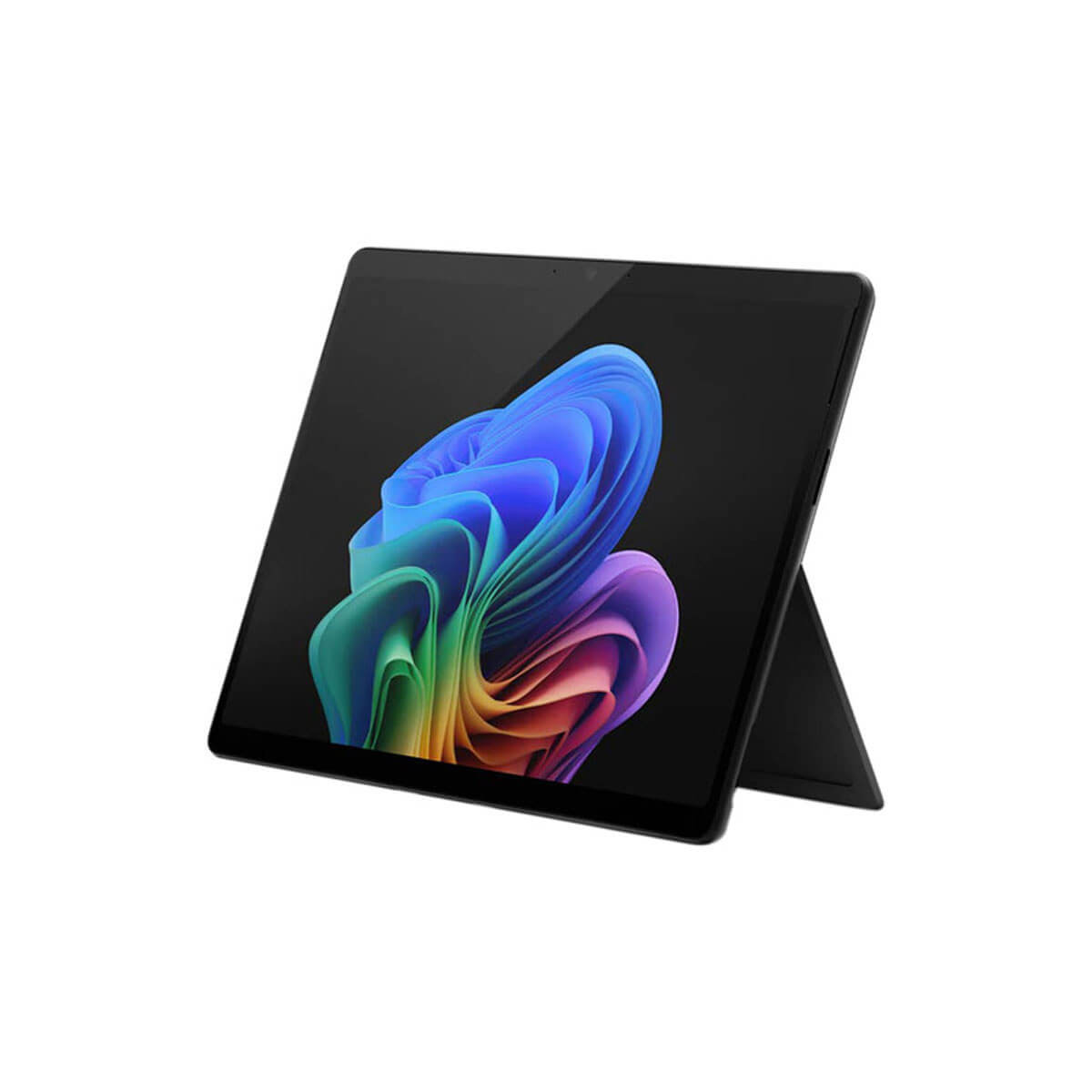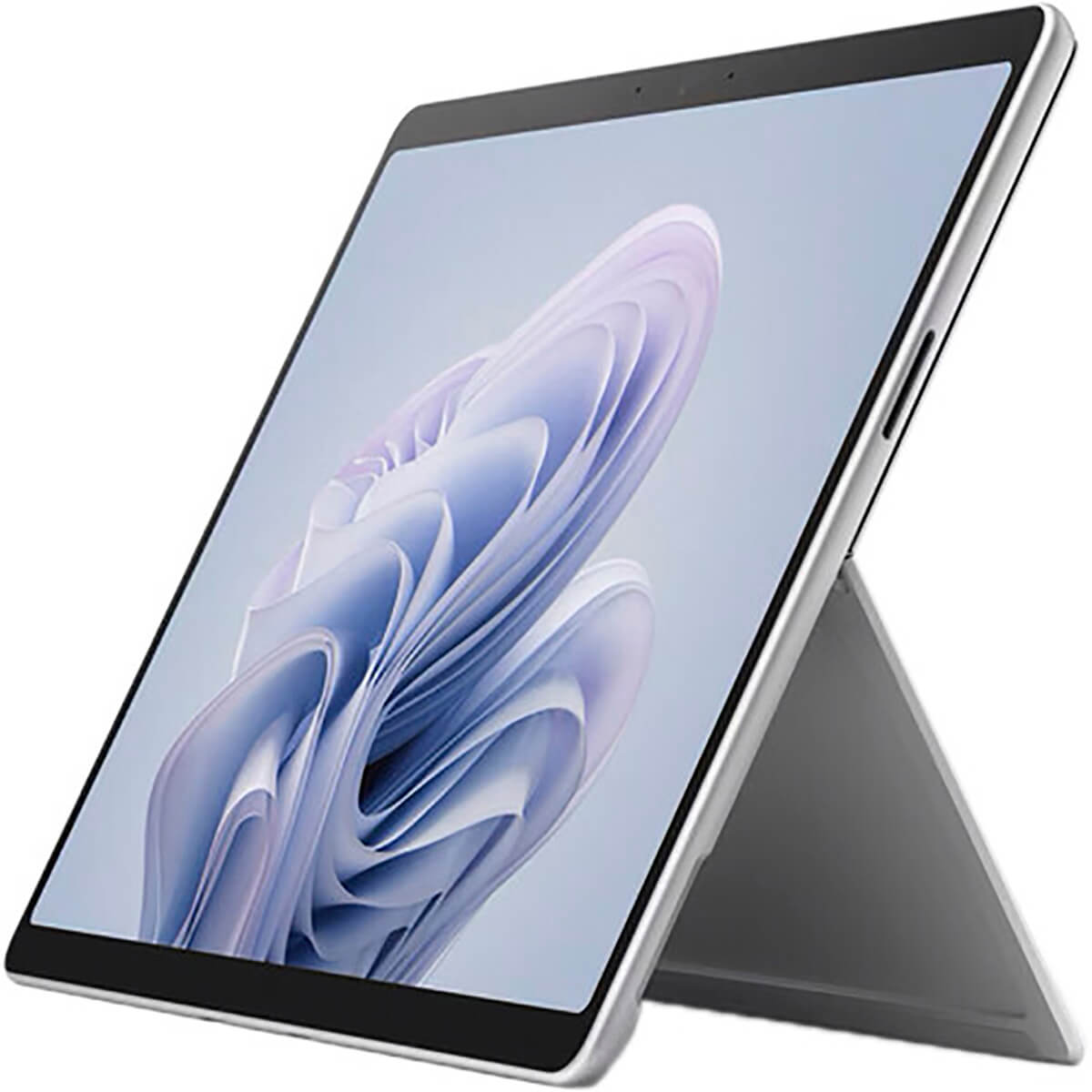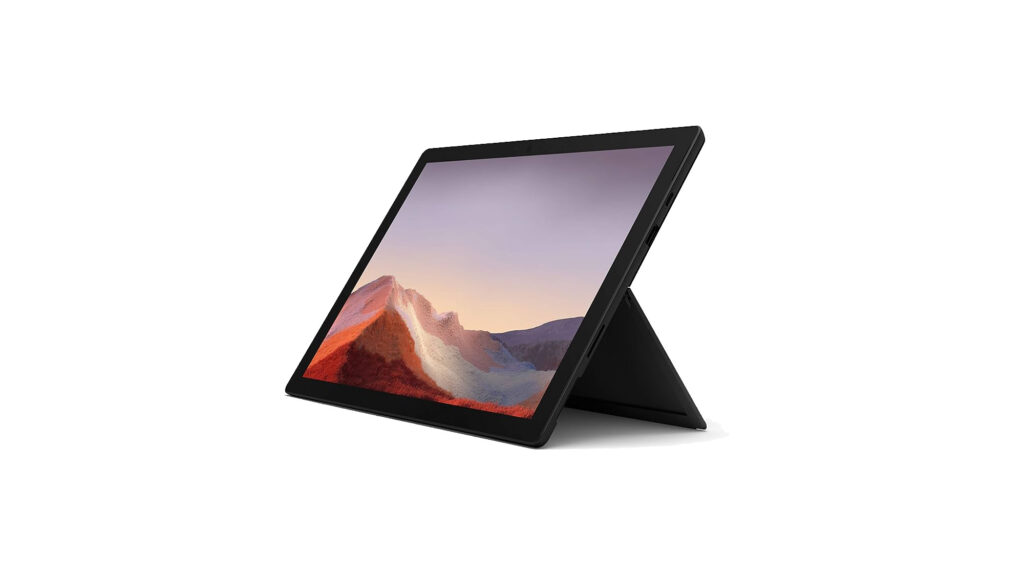In a world of constant technological evolution, the Microsoft Surface Pro 7 arrives as the calm before the storm of innovation. While it brings some notable improvements, particularly in performance, it doesn’t quite push the boundaries as we had hoped. With USB-C and Wi-Fi 6 finally arriving, the Surface Pro 7 still lags in key areas, especially for those seeking cutting-edge features.
Microsoft Surface Pro Collection
Premium 2-in-1 tablets for modern professionals

Surface Pro 11 – Copilot+ PC

Surface Pro 10 – Intel Ultra 7
Quick Review
The Surface Pro 7 is a reliable device but lacks the groundbreaking advancements to make it stand out in a crowded market. The introduction of a USB-C port is a long-awaited improvement, but without Thunderbolt 3, it falls short of offering the high-speed data transfer that professionals crave. Additionally, the thick bezels, unchanged design, and slight reduction in battery life make it hard to recommend over newer models like the Surface Pro 8 or 11.
Key Pros and Cons
Pros:
- Improved Performance: The device handles multitasking and daily tasks with ease, thanks to the latest Intel Core processors.
- USB-C Support: Finally adds some versatility for charging and data transfer.
- Wi-Fi 6 Ready: Future-proofs your internet connectivity with faster speeds.
Cons:
- No Thunderbolt 3: Limits high-speed data transfer options, which could have been a game-changer.
- Reduced Battery Life: Disappointingly, battery life has taken a step back compared to its predecessor.
- Thick Bezels: The outdated design doesn’t hold up well in a world where sleek and bezel-less displays are becoming the norm.

Design and Build: Sturdy but Stagnant
When you first look at the Surface Pro 7, it’s hard to tell it apart from the Surface Pro 6. The dimensions, finishes, and display remain largely the same, making this model feel somewhat stagnant in terms of design. At 11.5 x 7.9 x 0.33 inches and 1.7 pounds, the Pro 7 is still incredibly portable and durable, but it’s clear Microsoft didn’t prioritize aesthetic updates this time around.
What is new, however, is the USB-C port. While a welcome addition, it’s disappointing that it’s not Thunderbolt 3. This means the Pro 7 misses out on faster data transfer speeds and more versatile docking options—a crucial omission for a premium tablet in 2019, let alone 2024.
The Alcantara fabric-type cover is as comfortable and responsive as ever, though long-time users may notice a slight change in key travel and feel. The keyboard remains one of the Pro 7’s strong points, making it ideal for those who need a laptop replacement.
Performance: Fast but at a Cost
Powered by Intel’s 10th-generation processors, the Surface Pro 7 offers a noticeable bump in performance over its predecessor. Tasks like photo editing, web browsing, and running multiple applications at once are easily handled thanks to the Intel Iris Plus graphics and up to 16GB of RAM. It’s capable of more demanding tasks than the Surface Pro 6, but don’t expect to run high-end games or edit 4K videos seamlessly.
Benchmarks show a 25% increase in processing power over the Pro 6, which is impressive. However, this comes at the cost of battery life. The Pro 7 falls significantly short of the battery longevity we saw in the Surface Pro 6, dropping to around 6 hours on a single charge under typical usage.
Display: Good but Outdated
The Surface Pro 7’s 12.3-inch PixelSense display is still a joy. The 2,736 x 1,824 resolution provides sharp visuals with vivid colors and excellent touch responsiveness. However, it’s worth noting that this display hasn’t seen any significant updates in years, and the thick bezels are a glaring reminder of its aging design.
For a tablet in this price range, it’s surprising that Microsoft hasn’t added HDR support or enhanced color gamut coverage. Competitors are offering more advanced displays, making the Surface Pro 7 feel outdated by today’s standards.
Battery Life: A Step Back
Battery life is one area where the Surface Pro 7 disappoints. While previous models could easily last a full workday, the Pro 7 struggles to hit that mark. In our tests, it managed just over 6 hours in typical usage, compared to nearly 9 hours from the Surface Pro 6. The power-hungry Intel processors seem to be the culprit here, and while firmware updates may improve this in the future, it’s a significant drawback for anyone needing all-day performance on the go.
Verdict: A Safe Bet, But There Are Better Options
The Microsoft Surface Pro 7 is a solid tablet that does what it sets out to do. It’s fast, portable, and now comes with modern connectivity options like USB-C. However, it falls short in key areas such as battery life, design, and high-speed data transfer, leaving it in the shadow of newer models like the Surface Pro 8 or the Surface Pro 11.
If you’re committed to the Surface line and want a budget-friendly option, the Pro 7 may be worth considering, especially as prices drop with the release of newer models. However, for anyone seeking a cutting-edge tablet, it’s hard to recommend this device over the competition.
Buy It If:
- You need a tablet with a detachable keyboard that can double as a laptop.
- You’re a digital artist looking for a portable drawing tablet with Surface Pen support.
Don’t Buy It If:
- Battery life is a top priority.
- You want a sleek, modern design with thin bezels and the latest features.
By taking a cautious approach, the Microsoft Surface Pro 7 doesn’t make the leap forward we hoped for. It’s a capable device, but with stronger alternatives now available, it’s no longer the must-buy it once was.
